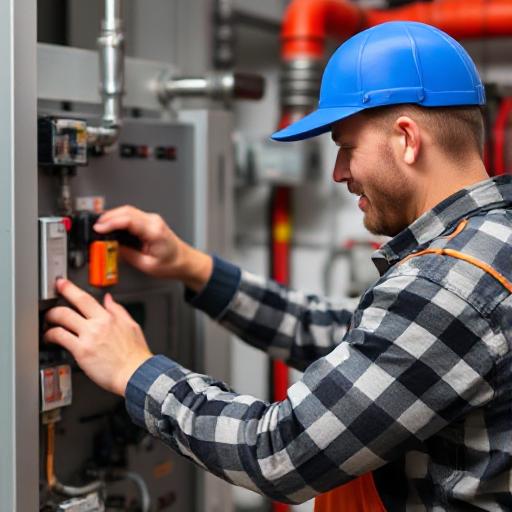Upskilling HVAC Technicians: How to Do It Right
Welcome to 2025—a year where the HVAC industry is booming and evolving faster than ever. If you’re in the HVAC field, you likely know the landscape is shifting rapidly with new technologies and regulations. But how do you keep up? Let’s dive into the essentials of upskilling HVAC technicians to stay ahead in this fast-paced environment.
The Urgency for Upskilling in HVAC
With a whopping 75% of HVAC companies planning to invest in upskilling programs by the end of this year, it’s clear that continuous education is not just a trend but a necessity. As low-GWP refrigerants are projected to make up 60% of new installations, your skills need to be top-notch to handle these advanced systems safely and efficiently.
Embracing New Technologies
The rise of AI-driven diagnostics and virtual reality training is revolutionizing the way you learn and work. Not only do these tools speed up the learning process, they also help you troubleshoot problems on the job more effectively. This means fewer hiccups and happier clients.
Bridging the Skills Gap
With 40% of current HVACR technicians set to retire soon, there’s a need to onboard and train approximately 40,000 new technicians annually. This is your chance to step up, fill the gap, and perhaps even advance to a service manager position, which offers a tempting median salary of around $72,899.
- Invest in advanced HVAC certifications.
- Participate in hands-on training sessions.
- Embrace AI and virtual reality as learning tools.
- Stay informed on EPA compliance and sustainable solutions.
Conclusion
Upskilling isn’t just about keeping your job—it’s about thriving in your career. With continuous learning and embracing new technologies, you’ll not only meet industry demands but also open doors to exciting opportunities. So, gear up and take your skills to the next level.
Ready to upskill? Start today by exploring new certifications and training programs!
FAQ on HVAC Technician Upskilling
Why is HVAC technician upskilling important in 2025?
Upskilling is crucial due to rapid technological advancements and regulatory changes, ensuring you remain competitive and efficient.
What are the key areas for HVAC skills development?
Focus on low-GWP refrigerants, AI-driven diagnostics, and smart system controls.
How can I get started with HVAC continuous education?
Look into online courses, certification programs, and hands-on workshops offered by leading industry organizations.
What are the career growth opportunities for HVAC technicians?
With retirements increasing, there’s a high demand for skilled technicians, creating opportunities for advancement and higher salaries.
How does AI impact HVAC technician training?
AI enhances training by providing real-time diagnostics and virtual simulations, accelerating learning and improving problem-solving skills.


